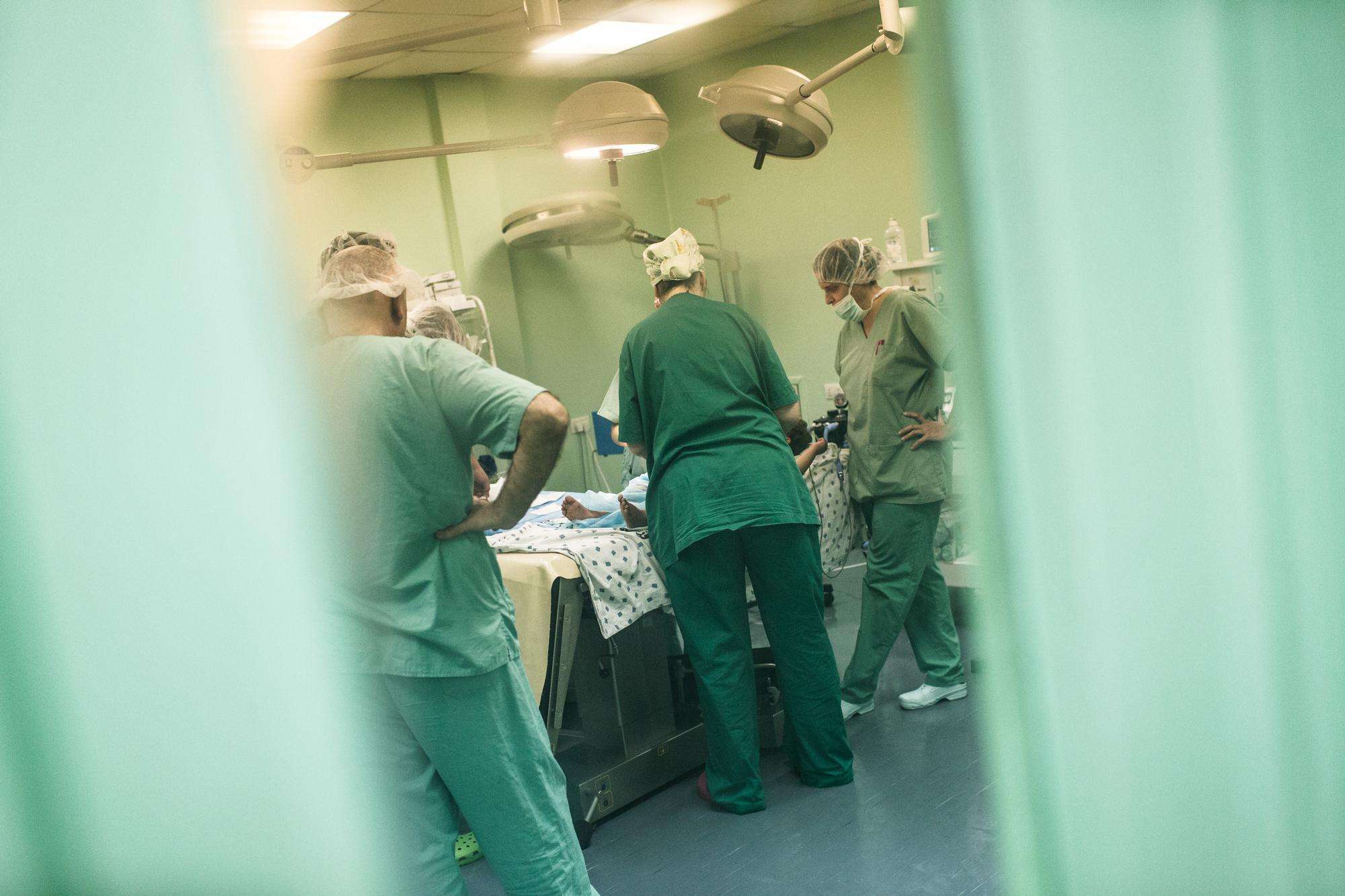Updated July 14:
The intensity of bombings that are part of the Israeli military operation “Protective Edge” makes it extremely dangerous for the population and Doctors Without Borders/Médecins Sans Frontières (MSF) teams in Gaza to move around. As of today, hospitals in Gaza are managing to cope with the influx of wounded arriving. However, the new crisis is aggravating an already fragile health system heavily affected by chronic shortages and structural weaknesses.
An average of 10 bombings per hour makes it practically impossible for MSF teams to continue with its regular medical activities and to move around to evaluate where the most urgent needs are. In two days alone, there have been more strikes than there were over eight days of the 2012 military operation Pillar of Defense.
“Rockets fired from Gaza are capable of reaching areas such as Tel Aviv, Jerusalem, and Haifa and are a real threat for the Israeli population," says Tommaso Fabbir, head of mission for MSF in Gaza and the West Bank. So far no deaths have been reported on the Israeli side.
In Gaza, health authorities reported that as of Sunday afternoon, more than 165 had been killed, including 30 women and children, and more than 1,200 wounded. On Thursday night, the bombing of one house killed eight people including five children. Other similar incidents have occurred as well.
“In the first few days, people received an SMS to warn them that an attack on their building was imminent. But today, this does not seems to happen systematically,” says Nicolas Palarus, MSF project coordinator in Gaza. Much of the population of Beit Lahiya, in northern Gaza, evacuated their homes after being warned to do so by the IDF; many are now sheltering in schools or with relatives elsewhere.
On Thursday, 12 patients living close to the MSF post-operative clinic were able to go to receive their treatment. But most of the patients who regularly come to the clinic live in the south of Gaza, and our teams have been unable to reach them.
Several health structures, including the European hospital, have been damaged by nearby strikes. The streets of Gaza are completely empty as people only leave their homes in case of an urgent need. "With only five to eight hours of electricity per day, water shortages and the difficulty of getting hold of basic living supplies, daily life for the population is like living under siege,” says Palarus.
On Thursday, 150 houses were destroyed and the water pipe supplying Shati Camp was damaged by a nearby strike. The 900 people who lost all their belongings are now being housed by their families and friends.
Due to fuel shortages, only 50 percent of ambulances are able to circulate. MSF is in daily contact with local health authorities and has visited two hospitals; the Al Shifa hospital in Gaza city and Khan Younis hospital in the south of Gaza strip.
"Even before now, the hospitals in Gaza were suffering from chronic shortages of medicine and disposables. So this crisis is weakening an already precarious system,” warns Nicolas Palarus.
MSF teams have received authorization to donate emergency medical supplies to Nasser Hospital. In Shifa hospital, health officials informed MSF teams on Friday that the situation was still manageable despite some drug shortages. On Sunday, staff at Shifa's burn unit referred five news cases to an MSF clinic. MSF donated emergency stocks of supplies to Nasser Hospital and the Ministry of Health.
The number of severely wounded people is increasing. The most urgent needs are currently found in the emergency rooms, and are increasing in intensive care units and the operating theaters.
The Rafah border crossing, between the Gaza Strip and Egypt, has opened occasionally and for very specific reasons. On Thursday, only 11 patients were transferred to Egypt, and another four patients crossed on Saturday. It appears that only those people having an international passport are authorized to cross the border. A medical team coming from different Arab countries is waiting to enter Gaza without success until now.
“It is indispensable for the wounded and the sick needing to be evacuated be able to do so through Rafah and Erez border crossings, and the medical teams and humanitarian convoys be allowed to enter. This is a legal obligation of Egypt and Israel, and vital for the population in Gaza,” affirms Tommaso Fabbri.
MSF has been working in Gaza for more than ten years. The MSF clinic in Gaza town specializes in post-operative care (dressings and physiotherapy), in particular for burn patients. In Nasser hospital in Khan Yunis city, south of Gaza, MSF organizes training for medical and paramedical teams working in intensive care, and provides specialized training in hand surgery. MSF has two surgical teams ready to enter Gaza and help Palestinian hospital staff.





